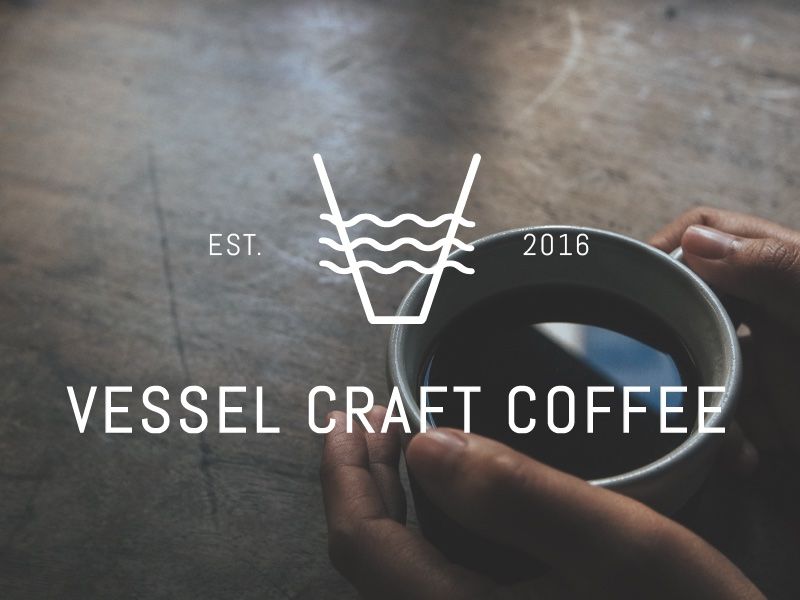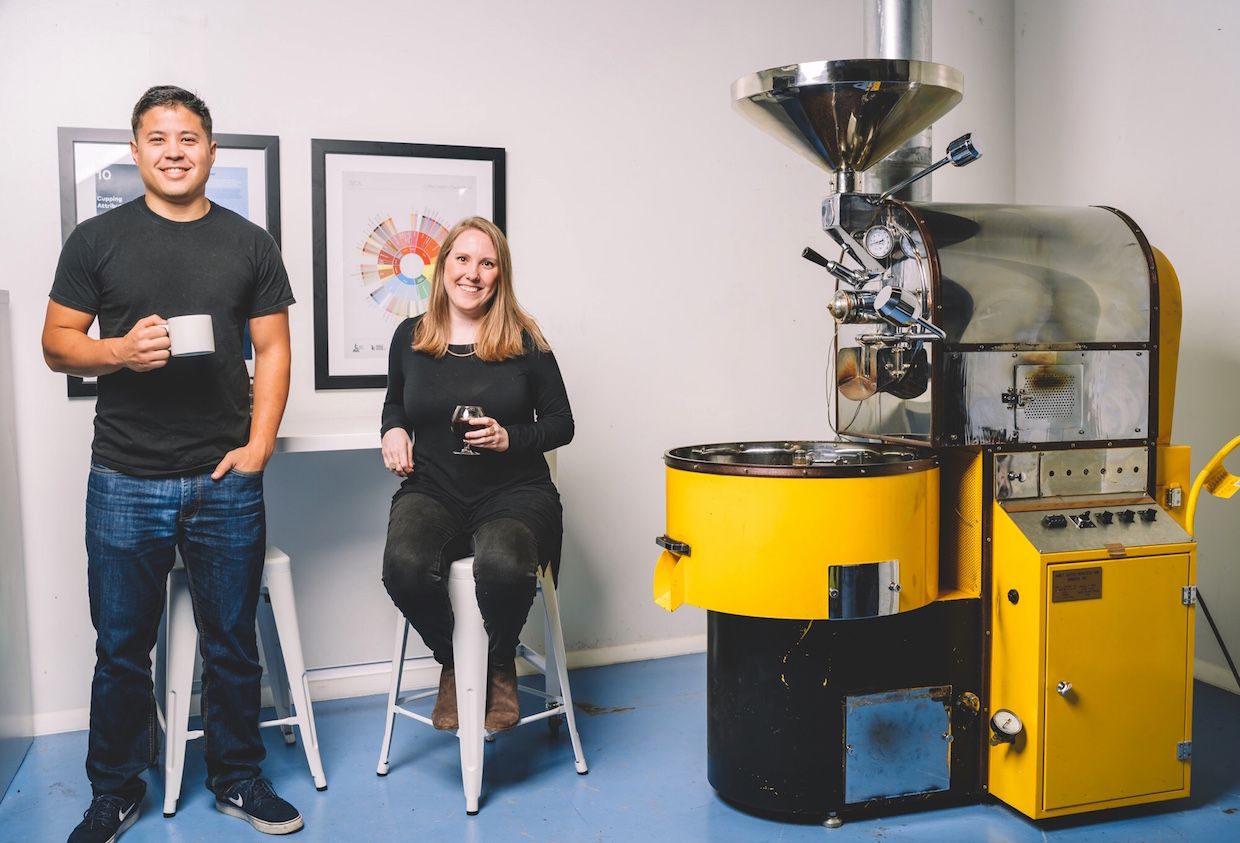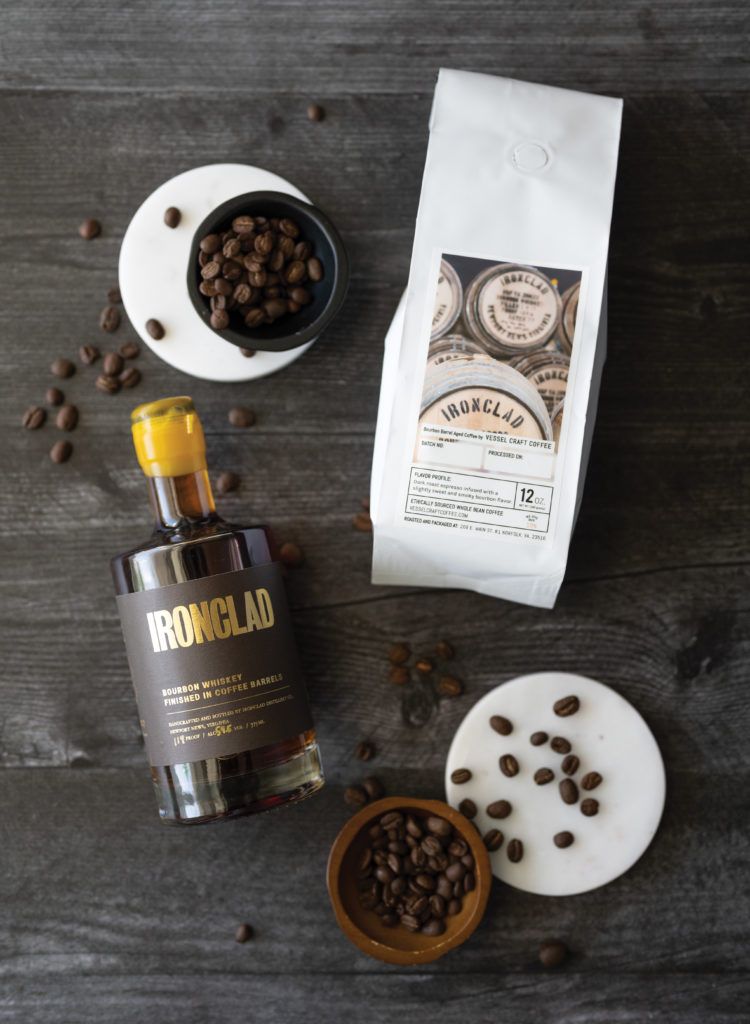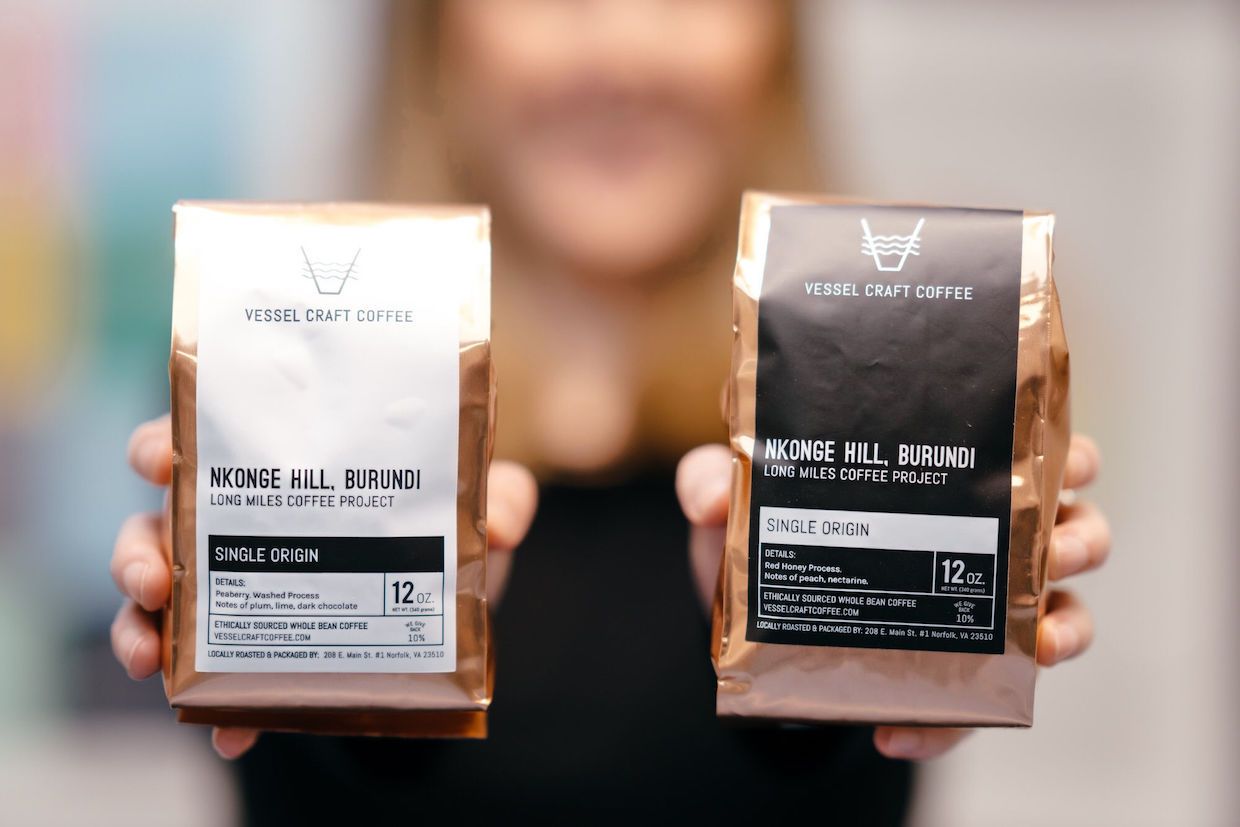Interview: Vessel Craft Coffee
Interview with Vessel Craft Coffee a Norfolk, Virginia based premium coffee company that combines the owners passion for quality with social entrepreneurship at the local and global level.

Vessel Craft Coffee is a Norfolk, Virginia based premium coffee company that combines the owners passion for quality with social entrepreneurship at the local and global level.
The founder developed engagement with coffee while doing missionary and nursing work in social health programs in Nicaragua. Returning the US, she combined the interests in developing her brand to reduce poverty, prevent deforestation and encourage humane working conditions in her hometown and abroad.
We had the pleasure of talking to Vessel about her brand and future.
(This interview was conducted as part the premium coffee subscription program in 2020 that is no longer in operation due to COVID 19 Business Closures).
Q:
We recently learned about your company by exploring our database of coffees and We discovered that you were a small roaster in a small town and not in the pinnacle of what people associate with third wave coffee. We’d love to learn more about what Vessel is about, where did you guys start, what's your history? There's a little bit of information on your website, but maybe hearing it from you personally would be a more productive.
Sarah:
Yeah, sure. I appreciate you reaching out. I got into coffee through an interesting route, and not probably a typical one. I'm actually a nurse by trade. I used to travel around all over the world, and I ended up a lot of times in coffee growing regions of the world because they typically have a lot of poverty and not a lot of access to health care. One of the places I used to go a lot was Matagalpa, Nicaragua, and now it happens to be one of my favorite coffee-growing regions of the world.
In Nicaragua we ended up setting up a clinic on a coffee farm and people would travel tens of miles to come and see us at the clinic. We noticed that the people on the coffee farm were paying their workers higher than the national minimum wage of the country. The people who were traveling to see us, that lived in the community and then on the outskirts of the community, had much poorer health outcomes than the workers who were living and working on that farm, that were being paid well from that farm because of their higher wages. That just intrigued me and I was hooked by that; that if you pay well in coffee and the workers are getting paid well at origin, that they can have better health outcomes in life. That's kind of how I got into coffee. I made a career switch in life and got really into it. So, that's where I am now.
I'm in Norfolk, Virginia. I actually came out to San Francisco and I was out there for a little less than six months and I got to do a little coffee scene tour there. So a lot of my inspiration for aesthetic and coffee culture comes from San Francisco. I really wanted to bring that coffee culture and that life from San Francisco to the Hampton Roads–Norfolk area because we don't have a lot of it here.
Q:
Which coffee brands did you like in San Francisco, particularly?
Sarah:
Well, my all-time favorite is Sightglass. I'm really obsessed with Sightglass, but of course the Blue Bottles and other quality roasters of note, but I went to this little Ethiopian coffee bar. It was wild. I had a great experience there and I wanted to bridge my experience in Nicaragua with what I enjoyed in San Francisco.

Q:
Cool. Yeah. Sightglass has a very beautiful aesthetic. Their build-outs are really nice and they have a range of blends and single origins. So, what made you feel confident enough to jump into the... How did you learn about roasting and running a shop and sourcing? How did you move to that stage?
Sarah:
I actually started off just as an online company selling beans, and I sourced beans actually from that farm that I went to in Matagalpa, originally, to launch. Then I was working with a local roaster here who was helping me. They actually roasted it for me and I was working with them to learn.. Then I actually applied for an incubator program here in the City of Norfolk, which was actually a totally new concept here. I know it's probably pretty common out west, but here it was very new. So I applied and got into a small incubator program here in the City of Norfolk, and I opened my first retail shop about a year after my online business was started. It was in a small retail location in Norfolk. Then about 10 months after that I ended up partnering with an acquaintance of mine who is a coffee roaster. We opened a roastery and switched over to roasting all of our own coffee. Then about four months later we opened a second storefront.
Our second location is actually not too far away from my first. It's in Norfolk City Hall building on the first floor.
Q:
What kind of roaster equipment are you using right now? Are you still roasting with the co-roaster or did you source equipment?
Sarah:
We're roasting on an Ambex roaster. We actually bought it from a company named Red Rooster. They're in southwestern Virginia, and they've won a number of roasting accolades. I think they actually won a national competition recently as well.
Q:
Awesome. Who's your roaster now? Are you doing it yourself or have you sourced or hired someone?
Sarah:
We actually run the two businesses separately, but we have a roasting company and then a retail company, Vessel Craft Coffee. We're doing all of our own roasting, and this year we're really focused on building out our wholesale side of the company. That's really exciting for us.
Q:
Have you built a training lab or are you using your coffee shop as the training facility?
Sarah:
We have a separate location within the same Market incubator location. It's behind all the retail shops, so we have a roasting lab back here in the same location.
Q:
Have you been able to travel back to Nicaragua? Are you still sourcing from that one farm that you originally worked with?
Sarah:
I haven't been able to source from that farm since we originally launched. They actually had built an entire coffee brand so unfortunately I haven't been able to source from them. But I do have a bean right now from Jinotega, a neighboring region, just because I feel such a connection to that area. But no, we haven't been able to make any origin trips yet. We're really hoping that this year, potentially, we'll be able to, and if not this year, hopefully next year for sure.
Q:
Are you working the importers or bean buyers? How are you buying your beans?
Sarah:
We're working with two importers, and we have a couple of other sources that are more direct. We're trying to move to more direct sourcing as we grow, but we're just a little too small right now to do 100%. We still do a ton of research with all the farms that we work with. We really try to work with farms that are doing something different. What I mean by that is the farm in Jinotega that we're working with, they pay the medical expenses of all the workers on their farm, they pay for all the vaccines of all the workers on their farm, they have a school on the property for all the children of the workers, and they also provide housing for the workers if they need it. We're really looking for farms that are doing something a little different, that really provide for the workers, and are really creating some sort of social impact. We really want to support them in what they're doing.
Q:
How has the feedback been from Virginia for maybe some of the higher prices that you have to charge to support that kind of buy? Have you had any resistance, or it's been okay?
Sarah:
It's been mixed. So far, we haven't had much pushback, but I think a lot of that just comes in education and storytelling. If we can get out the story out about why it's so important and that it doesn't cost much to make a difference to make a better choice. I think that the next generation of consumers are driven by social value in what they're purchasing we can really tap into that.
Q:
I saw that you're doing the barrel aging. Could you tell me about that collaboration?

Sarah:
Yeah, definitely. We're working with a distillery that's local here in Newport News called Ironclad Distillery. It's one of the initial partnerships that I got into when I opened the company and it's still one of my favorites. They give us barrels that they've aged bourbon in and then we age some of our coffee in it. I like to say art and a science because coffee doesn't like moisture like the inside of the barrel. We have perfected how to find the perfect balance in that, so basically the bean will soak up some of that nice, bourbony char flavor from inside the barrel. We do it on pour over at our bar, and then it's available on our online store. Then the distillery will take the barrels back, and they have now made a bourbon finished with coffee barrels. We just do a continuous swap back and forth, which is pretty fun.
Q:
Oh, that's awesome. I like how you're supporting the local... building up the local infrastructure for the made in Norfolk kind of stuff. That's cool how you're connecting to the outside world and then connecting to the local manufacturers as well. That's nice. What's next for 2020, or at least for the next year and the next maybe five years? What are you planning?
Sarah:
This year, like I said before, we're looking to expand our wholesale accounts. That's really first and foremost for us. Secondly, we're really looking to pool our roastery and our retail location together and possibly find maybe a flagship location where we can graduate from our incubator space. That's hopefully what we're going to do this year. Then, next five years, we're thinking big. We want to be a premier coffee company in the State of Virginia in the next five years, so we just want to continue to improve, refine our craft, learn as we grow, and not sacrifice quality during our growth. We want to get better and better as we go.
Q:
What's the biggest challenges you're having right now in that growth?
Sarah:
Right now, I would say we are growing fast. We’ve almost reached our max capacity at the facility that we're at right now. We're a little stuffed in here, so we're hoping to, like I said, find a space where we can optimize productivity and build an infrastructure that works for production to better serve our customers. It's a good problem to have, but that's what we're working on now.
Q:
Well, I think, at least in other markets, most cafes are just short-staffed. I don't know how the staffing is out there.

Sarah @ Vessell :
Yeah, I'm actually really lucky. I have a great staff, and right now I have two full-time employees which around here, it's not very common. We don't have a lot of career coffee employees around here, so I actually feel very proud that we're able to build careers in coffee here.
Q:
Is there any other things that you'd love to share about your company or what you guys are doing? I think it's a beautiful story from Nicaragua, nursing, helping the community, local growth. I'm excited to order some coffee and try it.
Sarah:
Thank you. One thing we didn't touch on is that we do a local give-back program. In addition to our quality sourcing, we like to give back locally as well, so we pick projects in the area that we believe in and, quarterly, we give back a portion of profits to support them. We believe that coffee can not only create community, but it can also change communities, so we've supported things like the local Boys & Girls Club, we've supported a project called The Urban Renewal Center, which works with racial relations in the City of Norfolk. Then we've supported the FBI Citizens Academy Alumni Association, and they also do local outreach in the community. We're excited to do a small part with some of the profits that we've seen flow through the company, which is exciting.
Q:
I love the giving back nature of your company? Where’s that altruism originate from? Is that from your nursing background or...
Sarah:
I wanted to create a business that means something, and not just one that runs after profits and a big buyout. I wanted to create something that brings change to the community that I live in and that I grew up in. That's really what I wanted to do. I think too, like I said before, the generation that I come from really seeks social value in their products, and I think that we can offer that to them by doing what we love, which is giving back to the community and making change through coffee.
Thank you so much for thinking of Vessel and reaching out. I appreciate it.
Q:
I think it's great that we discovered you because people are so focused on Tokyo and San Francisco and the big markets, so it's really great to see it penetrating across the smaller cities. I think it's great to see smaller entrepreneurs having success in those small markets, which I think is more growth. It's awesome.
Discover more about Vessel Craft Coffee